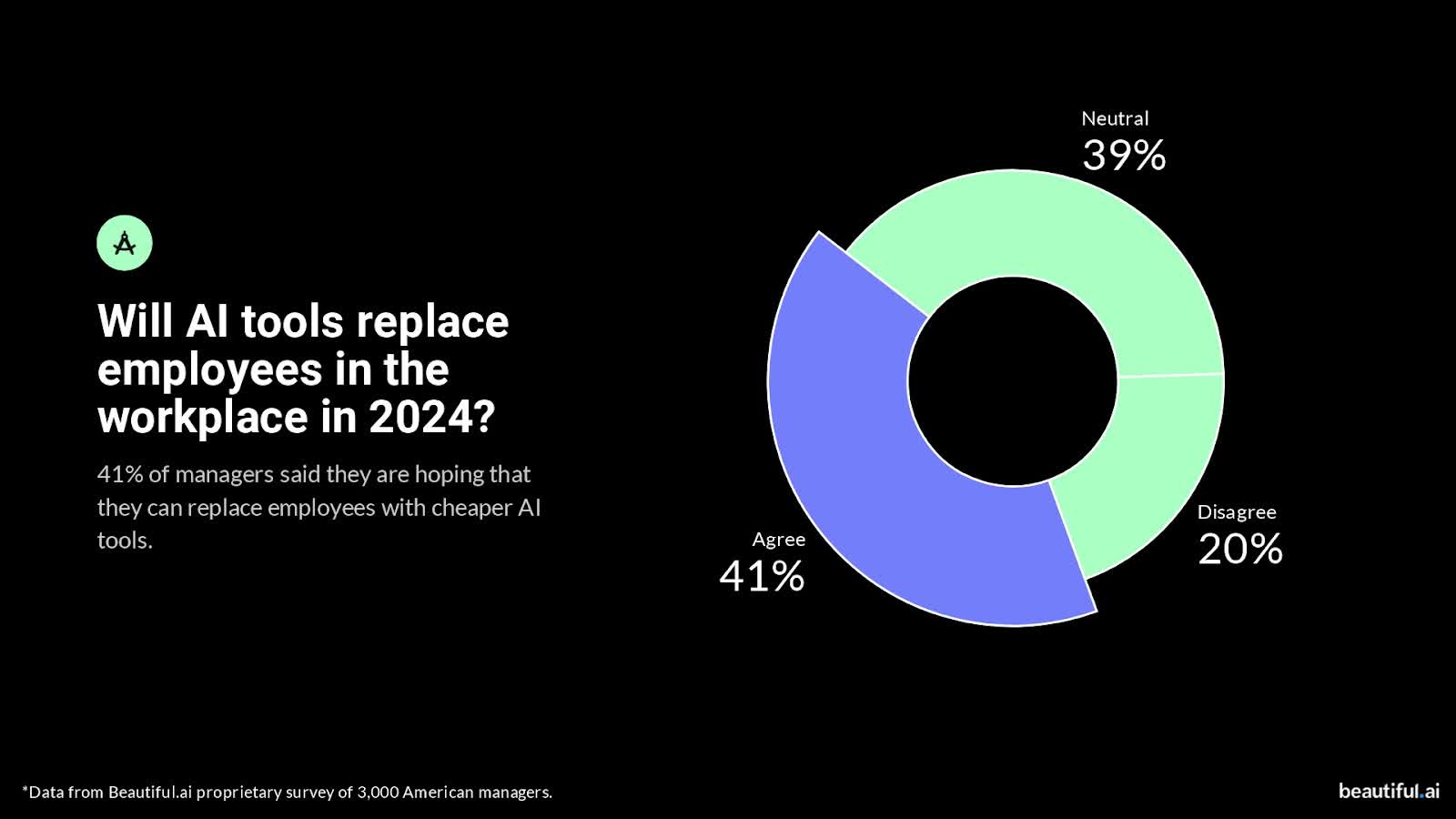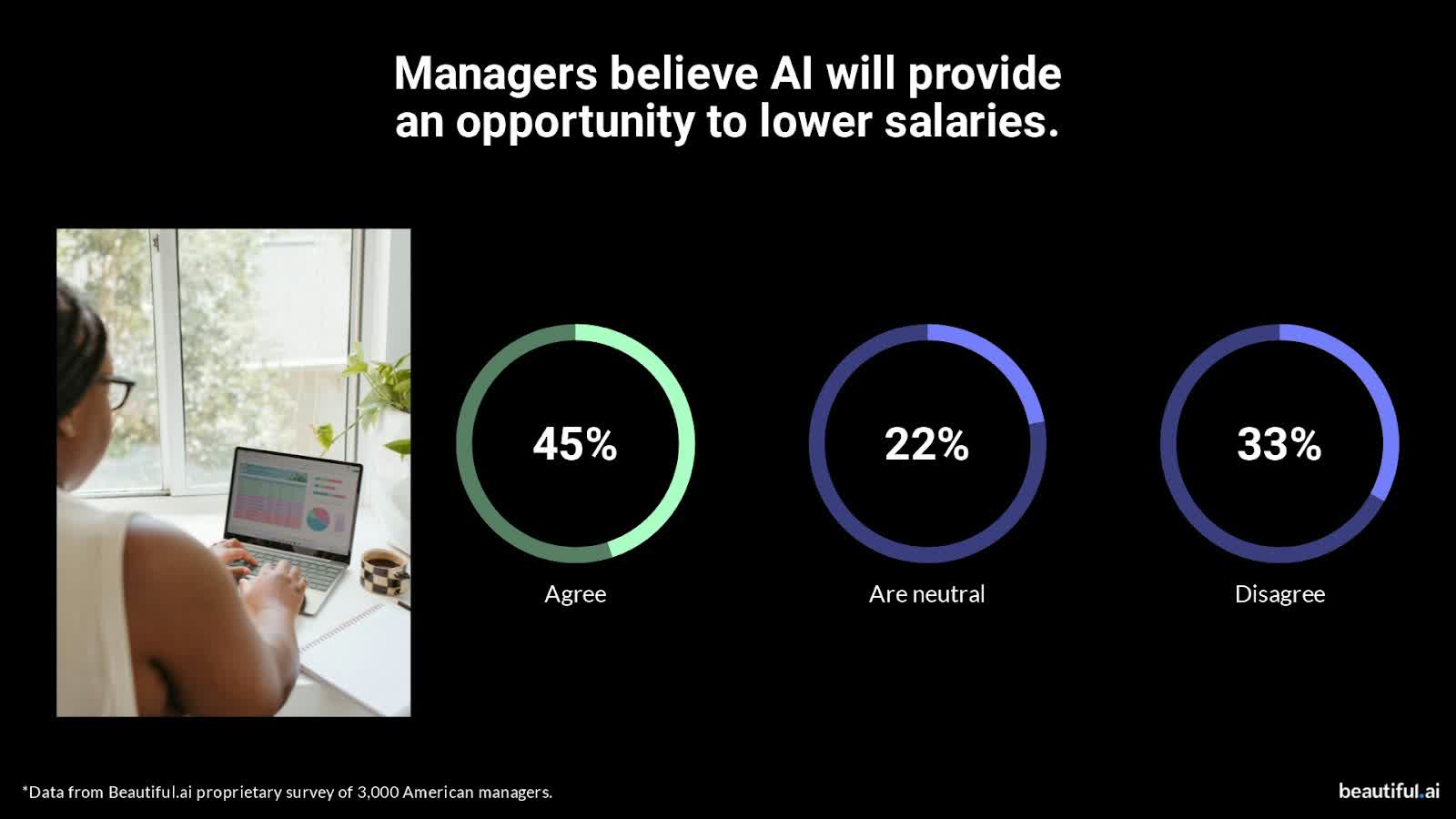The tech industry has been replacing masses of employees with AI tools as the sector adjusts to pre-pandemic levels of hiring again. But unfortunately for tech employees around the globe, this ongoing trend is here to stay for an unforeseeable future.
According to a recent survey conducted by Beautiful.ai, a firm that specializes in creating AI-powered presentations for workplaces, over 40% of managers in offices are actively trying to replace workers with cheaper AI tools this year. The survey took into account over 3000 managers and asked questions about the implementation of AI tools in offices and how much of an impact they believe these tools are going to have.

The response from these managers reinforces previous survey findings delving into the topic of workforce disruption due to the rise of generative AI. A notable report released in September projected that this emerging technology might lead to the displacement of more than 2 million jobs in the United States by the year 2030.
Furthermore, initial assessments have indicated that the global job market could see an impact on up to 300 million positions due to advancements in generative AI. This opinion is shared by Stability AI’s former CEO Emad Mostaque, who believes that there will be no programmers in 5 years due to the AI takeover. He cites statistics from GitHub which show that 40% of all code on the platform is made through Microsoft’s Copilot AI.
Going back to the survey at hand, the results continue to get more depressing for tech workers. Nearly half of all 3000 managers believed that their organization would benefit financially from replacing employees with AI tools. 40% of them say that their teams will be able to operate well without actual workers while 45% claim that AI tools would allow them to reduce worker salaries since they would have to do less work.

Unsurprisingly, a majority of managers, amounting to 62%, have reported that their workforce harbors concerns about artificial intelligence (AI) tools potentially leading to job losses. Moreover, 66% of these managers have observed a growing apprehension among their employees regarding the possibility that AI tools might diminish their value in the workplace by 2024.
Even managers themselves are afraid that AI will result in lower salaries for them in the near future, according to 90% of the results. 64% believe that the output and productivity of AI tools are either equal to or higher than human workers.






